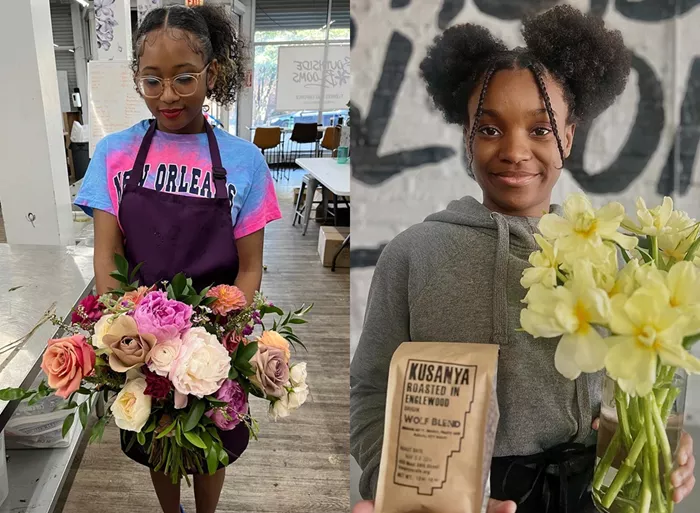Chicago, often highlighted in the national media for its high crime rates and pervasive violence, is also a city of resilience, faith, and hope. Amidst the backdrop of alarming homicide statistics, a Christian flower shop, Southside Blooms, stands as a beacon of light, offering young people a chance at a brighter future.
A Blooming Vision of Hope
Founded by Quilen and Hannah Blackwell, Southside Blooms is more than just a flower shop; it is the heart of a broader initiative aimed at reversing the cycle of poverty and violence that grips Chicago’s South Side. The couple began their mission with the founding of Chicago Eco House, a non-profit organization born out of their Christian faith. Their vision was to create opportunities for high-risk youth, offering them a pathway away from the streets and into a future filled with hope.
Quilen, who grew up in a middle-class family in Madison, Wisconsin, was first exposed to the harsh realities of poverty when he volunteered to mentor high school students in Chicago’s South Side in 2013. “That was the first time I really faced poverty in the Black community,” he recalls. The students he encountered were bright and full of potential, yet they were often trapped in a cycle of limited opportunities and pervasive violence.
This experience fueled the Blackwells’ determination to make a lasting difference. In 2014, with just $150 donated by a friend, they purchased a dilapidated graystone house in Englewood, one of Chicago’s most violent neighborhoods. This modest investment marked the beginning of Chicago Eco House, which started as an after-school program for local children in 2016.
Planting Seeds of Change
The Blackwells soon realized that providing meaningful employment was key to breaking the cycle of poverty and violence. In 2017, they expanded their efforts by purchasing two vacant lots in the neighborhood, transforming them into commercial solar-powered flower farms. The idea was simple yet revolutionary: turn blighted, neglected land into vibrant, life-giving spaces.
These flower farms, powered entirely by solar energy, are more than just a source of beautiful blooms. They represent a lifeline for the community, offering local youth a chance to work in a safe environment, away from the lure of gangs and crime. The teens employed at Southside Blooms are trained in flower arrangement, farming, and merchandising, gaining valuable skills that can open doors to future opportunities.
“Can you imagine driving through the South Side of Chicago and seeing flower farms everywhere?” Quilen asks, his voice filled with hope. “It would be like driving through Napa Valley, where you see beautiful vineyards everywhere. This is a dream that can be realized.”
A Safe Haven Amidst the Chaos
Southside Blooms is strategically located in a community where crime and gang activity are rampant. The flower shop serves as a safe haven for young people, offering them not just a job but a sense of purpose and belonging. The impact of this initiative is palpable, as many of these young people find themselves not only staying out of trouble but also thriving in ways they never thought possible.
“Our ministry proves one thing,” Quilen emphasizes. “No life is unimportant, no life is garbage.”
The flower farms have also had a positive impact on the community as a whole. Each farm features a pocket park, a green space where children can celebrate birthdays, families can hold barbecues, and the community can come together for concerts and events. These spaces, once neglected and forgotten, have become hubs of life and joy, contributing to a sense of pride and ownership among residents.
The Ripple Effect of Hope
The success of Southside Blooms has not gone unnoticed. City and county authorities have recognized the positive impact the flower shop has had on the community. Even though Chicago’s crime rate remains high, initiatives like Southside Blooms offer a glimmer of hope and a reminder that change is possible when communities come together to create opportunities for their most vulnerable members.
Avik Das, Executive Director of the Cook County Judicial Advisory Committee, praised the organization’s impact, stating, “This is a community-led initiative that has made a tangible difference. It’s not just about reducing crime; it’s about restoring hope and dignity to a community that has been overlooked for far too long.”
As Chicago continues to grapple with its challenges, Southside Blooms stands as a testament to the power of faith, community, and the belief that no life is beyond redemption. The flower shop’s story is a reminder that even in the darkest of places, beauty can bloom, and hope can flourish.

